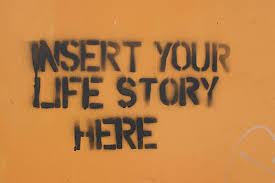So far we've looked at the source of stories and how to begin them. Today we'll look at how to tell a story.
You can write a story in any order you want. You don't have to start at the beginning. Furthermore, you probably don't know what the beginning will be when you start writing. Organizing, structuring, editing, revising come later, after you've got the whole story out on paper.
Story is the causal connection between scenes. Which brings me to the most important ingredient in any story: the scene. If you don't have scenes, you don't have action; nothing happens. Scenes are essential.
Guidelines:
1. If it's important to mention, make it into a scene.
2. Establish a setting: get the characters in.
3. Create action among characters.
4. Have dialogue or internal monologue.
5. End the scene: get the characters out.
6. Do not name a characters unless she or he is important.
7. To build tension write short sentences.
8. Long sentences allow the reader to rest.
These guidelines apply to fiction as well as non-fiction.
THE SOURCE OF STORIES: WRITING FROM EXPERIENCE AND IMAGINATION
WORKSHOP STARTING SEPTEMBER 20
THE NEWBERRY LIBRARY, 60 WEST WALTON, CHICAGO
SATURDAYS 10 - 12 NOON
TO REGISTER GO TO http://www.newberry.org

